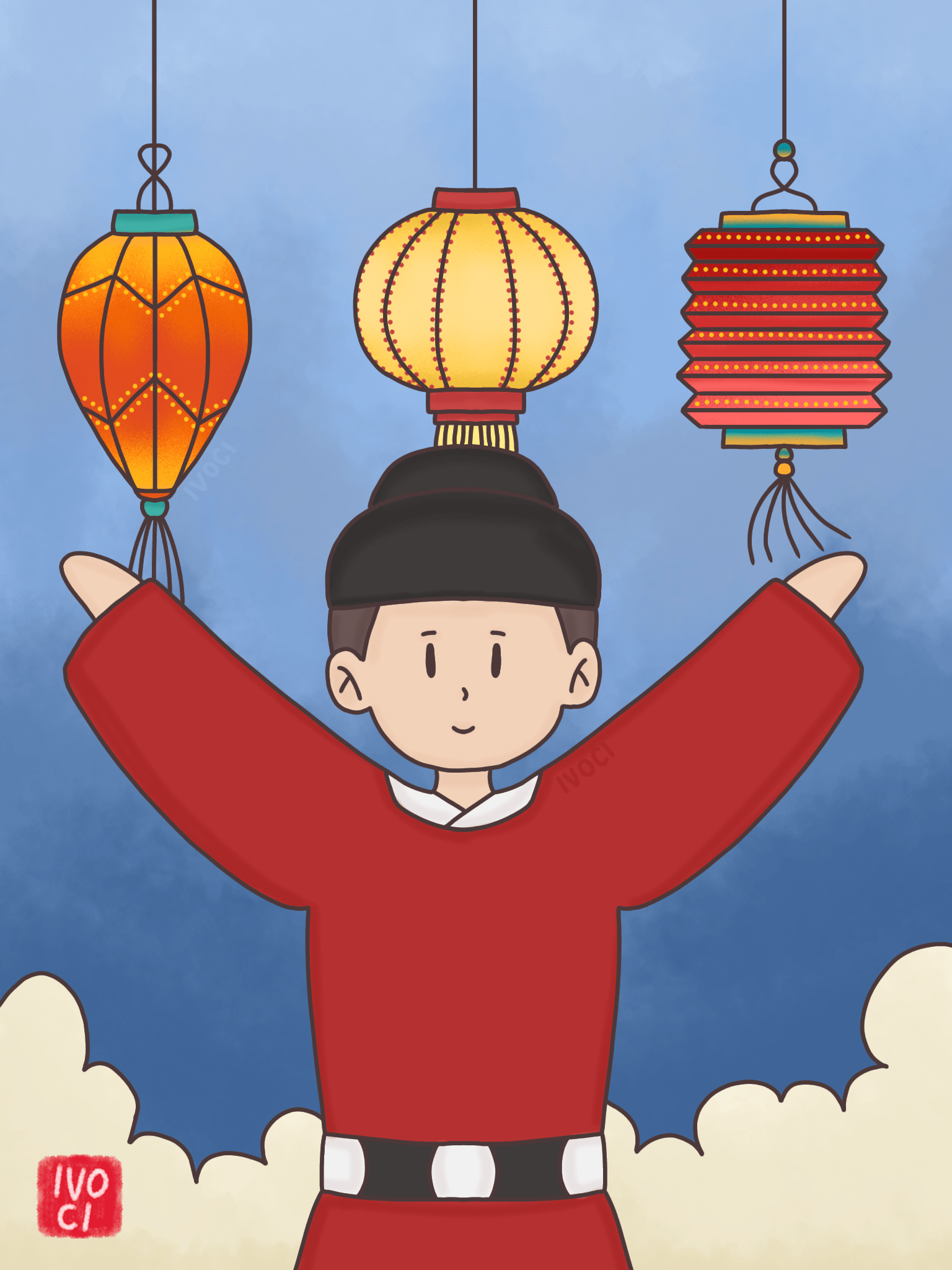Yuan Xiao Jie (Chinese: 元宵节 ; pinyin: yuán xiāo jié) or the Lantern Festival, also known as the Shangyuan Festival, takes place on the fifteenth day of the first lunar month each year.
The Lantern Festival is one of the traditional festivals in China.
The Lantern Festival mainly includes a series of traditional folk activities such as lantern viewing, eating tangyuan/yuanxiao, guessing lantern riddles, and setting off fireworks.
In addition, many local Lantern Festivals also add traditional folk performances such as dragon lantern tours, lion dances, stilt walking, dry boat rowing, and more.
Festival meaning
The Lantern Festivals, such as the Spring Festival, Qing Ming Festival, Dragon Boat Festival, and Mid-Autumn Festival are traditional Chinese festivals.
Their cultural connotations and social values are far superior to other festivals, and they have great significance.
From New Year’s Eve to the Lantern Festival, the Spring Festival is a process in which people continuously broaden their scope of activities and broaden their interpersonal relationships.
On the fifteenth day of the first lunar month, all members of society, regardless of gender, or age, join in on the festival activities.
Therefore, the Lantern Festival has an important meaning to strengthen relations between all community members (including those who don’t know each other).
As Chinese Valentine’s Day
The Lantern Festival is also a romantic festival among Chinese traditional festivals.
In ancient society, the Lantern Festival provides an opportunity for unmarried men and women to meet.
Young girls in traditional society are not allowed to go out for free activities, but they can go out together during the Lantern Festival.
The Lantern Festival is also another time for young men and women to meet their lovers.
Traditional culture
China has a vast territory and a long history, so Lantern Festival customs vary across the country, among which Lantern Festival eating, lantern viewing, and lion dancing are some of the important folk customs of the Lantern Festival.
a. Eat tangyuan/yuanxiao
b. Festive lantern
c. Guess the riddle of the lantern
d. Playing dragon lantern
e. Lion dance
f. Rowing a land boat
g. Send or give a lantern
And many others
If in your area, how do you celebrate the Lantern Festival?
Legend of the Yuan Xiao Jie / Lantern Festival
According to legend, Emperor Wu of the Han dynasty had a favorite minister named Dongfang Shuo, who was kind and funny.
One winter, when it snowed heavily for several days, Dongfang Shuo went to the imperial garden to pick plum blossoms for Emperor Wu.
As soon as he entered the garden gate, he found a maid crying ready to throw herself into the well.
Dongfang Shuo hastily stepped forward to save her and asked her why she wanted to kill herself.
This palace maid called Yuan Xiao, and she had parents and a younger sister at home. Ever since she entered the palace, she never had the chance to see her family again. This palace maid said that if she couldn’t serve her parents, she would rather die.
After hearing what happened to her, Dongfang Shuo felt very sympathetic and assured her that he would try to reunite her with her family.
One day, Dongfang Shuo came out of the palace and set up a fortune teller’s booth on Chang’an Avenue.
One day, Dongfang Shuo came out of the palace and set up a fortune teller’s booth on Chang’an Street. Many people were scrambling to ask him for divination. Unexpectedly, everyone’s possessions and requests were all signed with “burning the body on the sixteenth day of the first lunar month”.
Suddenly, there was great panic in Chang’an. People have asked for a solution to the disaster. Dongfang Shuo said: “On the night of the fifteenth day of the first lunar month, the God of Fire will send a goddess dressed in red to visit the earth. She is the messenger ordered to burn Chang’an. I will give you a transcribed song so that today’s emperor can think of a way”, then threw the red pole and left.
The commoners took the red pole and hurriedly sent it to the palace to report to the emperor.
Emperor Wu of the Han Dynasty looked and saw that it read: “Chang’an is on the robbery, fifteen days of fire, Yanhong dinner”,
He was shocked and quickly invited the resourceful Dongfang Shuo over.
Dongfang Shuo pretended to think about it, and said, “I heard that the Fire God likes glutinous rice balls very much. Didn’t Yuan Xiao in the palace often make glutinous rice balls for you? You can ask Yuan Xiao to make glutinous rice balls on the fifteenth night.
Every family is ordered to make sticky rice balls, and worship the god of fire together.
Then tell the ministers to hang the lanterns together on the fifteenth night, set off firecrackers, and set off fireworks all over the city, as if the city is full of fire, so that the Jade Emperor can be deceived.
In addition, people outside the city are told to go to the city to see the lanterns on the fifteenth night, and to disperse disasters and solve problems among the people.”
Upon hearing this, Emperor Wu was very pleased, so he sent messengers to do it according to Dongfang Shuo’s method.
On the fifteenth day of the first lunar month, the city of Chang’an is decorated with lanterns and decorations, and tourists come and go, making it especially lively.
Yuan Xiao’s parents also brought her younger sister to the city to watch the lanterns. When they saw the palace’s huge lantern with “Yuan Xiao” written on it, they cried out in shock: “Yuan Xiao! Yuan Xiao!”
Yuan Xiao heard the screams and finally reunited with her relatives at home.
After such a lively night, the city of Chang’an is safe and sound.
Emperor Wu of the Han Dynasty was overjoyed, so he ordered that glutinous rice balls be made for the God of Fire on the fifteenth day of the first lunar month, and on the fifteenth day of the first lunar month, lanterns would be hung in the city and set off fireworks.
Because the glutinous rice balls that Yuan Xiao makes are the best, this celebration is called Yuan Xiao Jie (Chinese: 元宵节 ; pinyin: yuán xiāo jié) in Chinese.


Leave a Reply